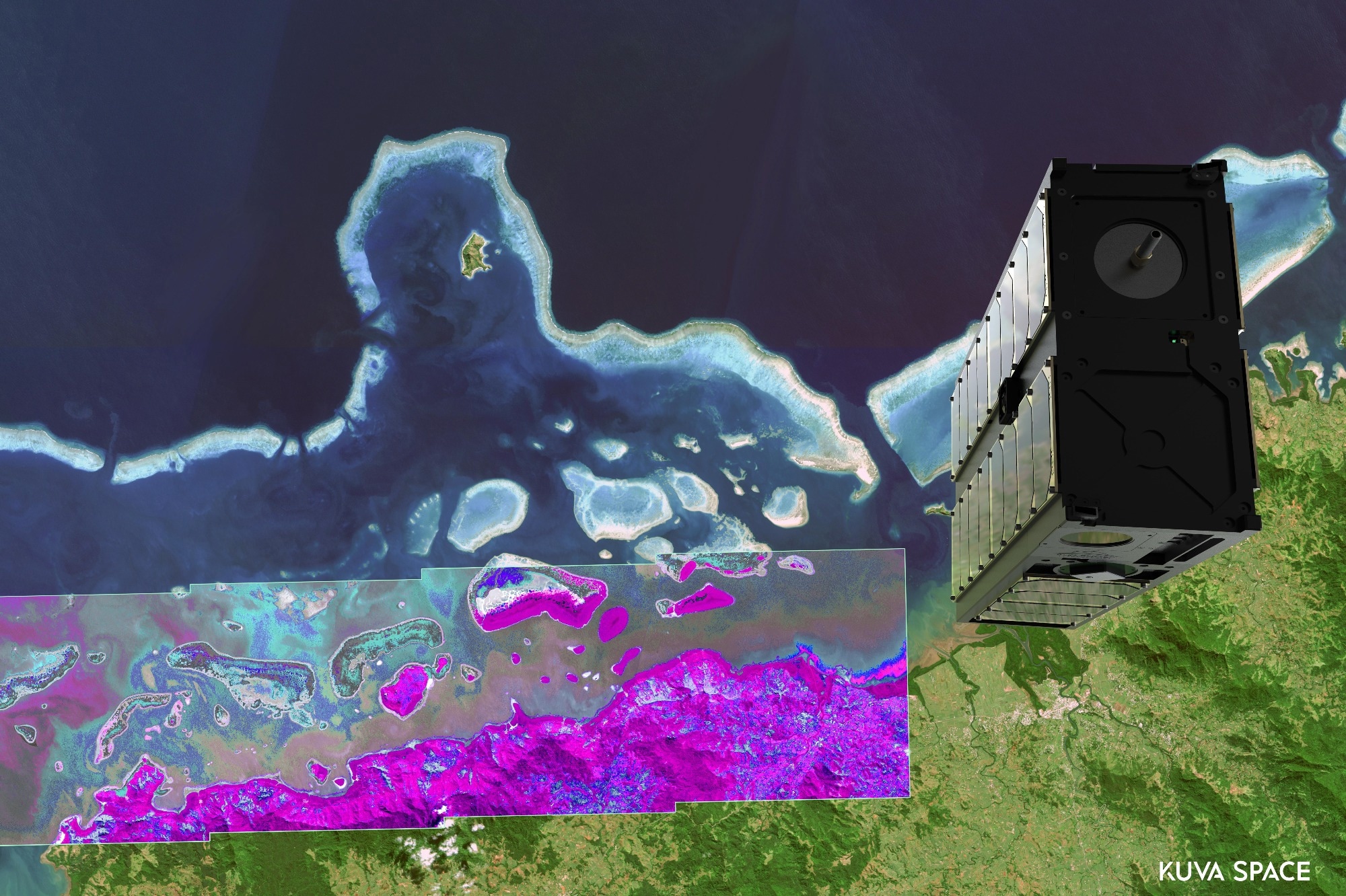Finnish Earth observation company Kuva Space has today been awarded a five-year commercial contract worth €5M to be the world’s sole provider of hyperspectral data services for the European Commission’s Copernicus Contributing Missions (CCM) program.

Image Credit: Kuva Space
Chosen by the European Space Agency, Kuva Space will demonstrate its proprietary technological capabilities to monitor farming and aquaculture crops, forests, methane release, and harmful algae blooms in seas and coastal areas. Kuva Space's hyperspectral data services will facilitate the development of new and accurate commercial services for Copernicus users and beyond, helping them make financially smarter and environmentally responsible decisions related to global issues like food security, carbon capture, and safety and security.
"We are honored to have been awarded this opportunity to bring our unique hyperspectral innovation and expertise to the esteemed Copernicus community," states Jarkko Antila, CEO of Kuva Space. "We look forward to closely collaborating with European Space Agency experts to validate our data quality and capabilities. This program represents a remarkable opportunity to help shape the high standard for hyperspectral data services within the EU and globally,” he continues.
Kuva Space’s commercial microsatellite constellation, equipped with a patented hyperspectral camera, can capture scientific-grade data on details like crop types and their health, soil conditions, biomass, biodiversity, and marine chemical pollutants, at scale. Leveraging its AI-driven analytics platform, Kuva Space transforms the collected data into actionable insights, empowering users to monitor, identify, and forecast changes and their impact in near real time.
The availability and usage of hyperspectral data has previously been limited or non-existent in Earth observation. With near real-time hyperspectral data, industries such as agriculture, insurance and finance, carbon and environment, and safety and security get access to reliable, verifiable and robust insights when making decisions.
“The economic viability of generating continuous, reliable, and affordable hyperspectral data has been hindered by the large size and high costs associated with massive spaceborne hyperspectral instruments. However, Kuva Space's compact, innovative space and hyperspectral camera technology have overcome these challenges. We are seriously committed to improving life on Earth,” continues Antila.
For example, farmers worldwide are facing increased vulnerability due to extreme weather conditions. Kuva Space's hyperspectral imaging can detect subtle changes in crop health, enabling early disease detection, pest management, stress assessment, and damage evaluation with daily measurements. This contributes to enhancing food security and productivity, particularly in developing countries that require crop insurance policies based on accurate and rapid "proof-of-loss" assessments. Moreover, the data services provided by Kuva Space can facilitate effective crop trading with timely and up-to-date forecasts when setting prices to trade.
Another example is in the carbon credit market, which is expected to grow to around $250 billion by 2050. Kuva Space can offer frequent hyperspectral measurements that can unlock the potential of blue carbon capture (carbon captured by the world's ocean and coastal ecosystems) and agricultural offsets. By capturing data frequently, changes in carbon stocks, vegetation health, and ecosystem dynamics can be tracked over time.
“With a time-series view of the coastal and marine ecosystems and agricultural landscapes, we bring accountability, trust and pricing transparency to the entire market and fuel its growth,” says Tuomas Tikka, CTO and co-founder at Kuva Space.
Kuva Space will launch its Hyperfield-1 microsatellite in November 2023 before launching four Gen 2 microsatellites in 2024. This will mark the initial stage of Kuva Space's planned constellation, which aims to eventually deploy up to 100 satellites by 2030 to measure the material composition of any target on Earth sub daily, heightening society’s ability to meet climate and safety and security challenges.
With local representation in Finland, Japan, Belgium, the USA, and the UK, Kuva Space has raised €6.5M in total funding from Reaktor Ventures, Voima Ventures, Nordic Foodtech VC, VTT Technical Research Centre of Finland, and public funding from ESA Philab and Business Finland. The company is currently raising its Series A round.